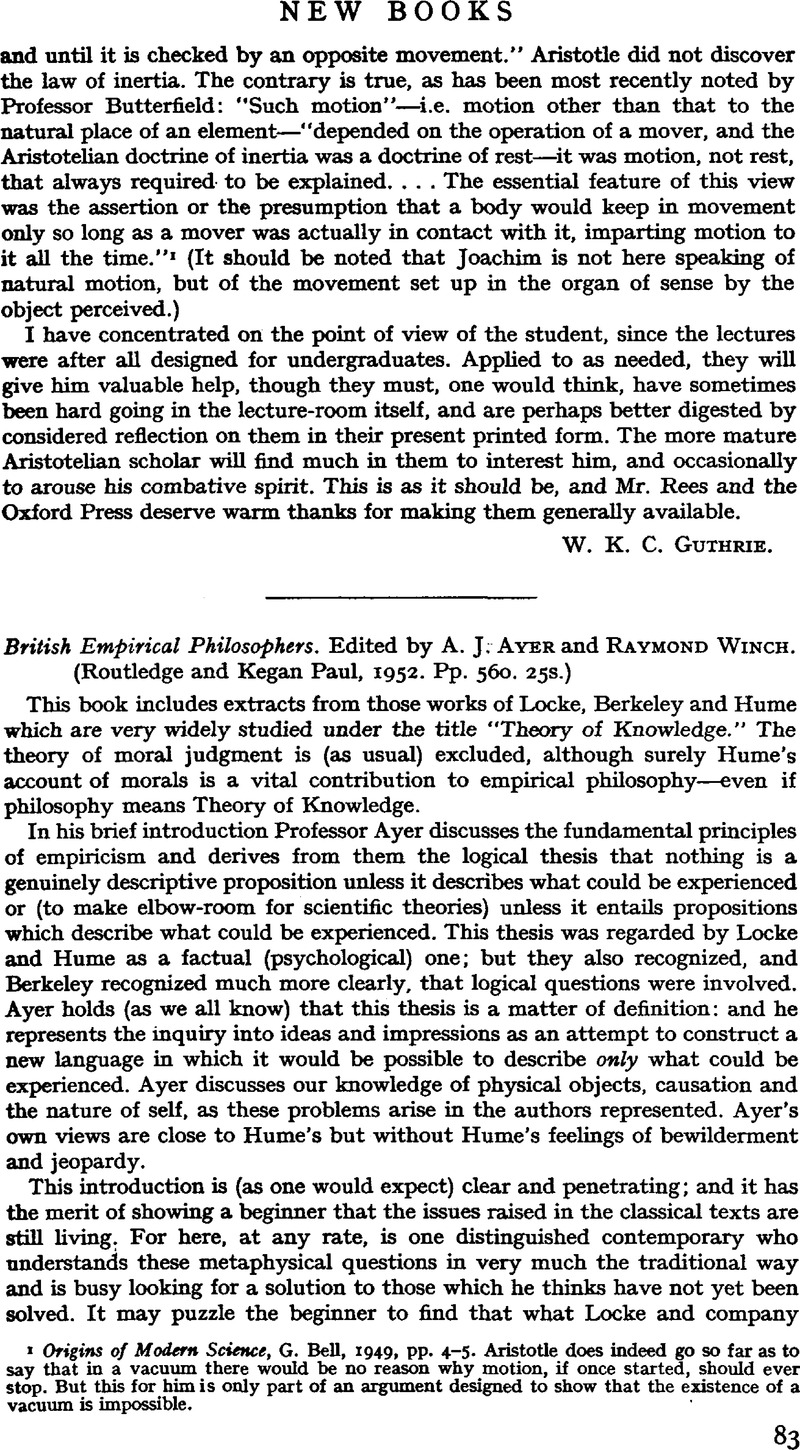No CrossRef data available.
Published online by Cambridge University Press: 25 February 2009

1 Origins of Modern Science, G. Bell, 1949, pp. 4–5. Aristotle does indeed go so far as to say that in a vacuum there would be no reason why motion, if once started, should ever stop. But this for him is only part of an argument designed to show that the existence of a vacuum is impossible.